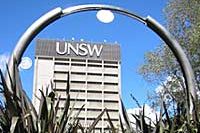|
||||||||||||||||||||||||||
| Financial Economics - ECONJ13521 | ||||||||||||||||||||||||||
Financial Economics is concerned with understanding how financial instruments are priced in markets and how individuals and firms manage financial risk.
Markets for financial instruments arise because some firms and individuals want to borrow while others want to save. A large corporation, for example, may borrow funds to purchase new plant and equipment by issuing further stock while an individual may save by purchasing stocks or government bonds. Markets for financial instruments also arise because firms and individuals want to manage financial risk. For example, a large corporation may bet against the risk of large fluctuations in the Australian - U.S. dollar exchange rate by selling its goods by way of futures contracts. Understanding how the prices of financial instruments are determined in the market place is a central concern of financial economics, along with the design of new financial derivatives. The area of financial economics that deals with the study of real-world data is known as financial econometrics. Financial econometrics is concerned with the statistical analysis of financial data and testing the real-world applicability of asset-pricing theories. This major provides students with a thorough understanding of the economic principles that underlie the pricing and allocative role of all financial assets, whether they are stocks, bonds, futures or options.
Compulsory core courses
Please note: Students who complete a Financial Economics major as part of the BCom, must complete ECON1101 Microeconomics 1 (6 UOC) and ECON1203 Business and Economic Statistics as a normal requirement of the compulsory business core of the BCom).
Compulsory major specific courses
Elective courses
Honours level study is also available in Financial Economics. For students wishing to consider taking Honours and taking the Financial Economics major the following courses would be recommended as a good preparation for Honours:
Students interested in Honours should refer to the Honours plan record for entry requirements.
Please note that these requirements may be subject to change.
Students are advised to follow requirements according to the year they commenced. Please refer to previous editions of the Online Handbook for your program requirements. Contact the Australian School of Business Student Centre for advice. tel: + 61 2 9385 3189 location: Ground Floor, West Wing, Australian School of Business Building Forms, policies and procedures Frequently asked questions |
||||||||||||||||||||||||||



